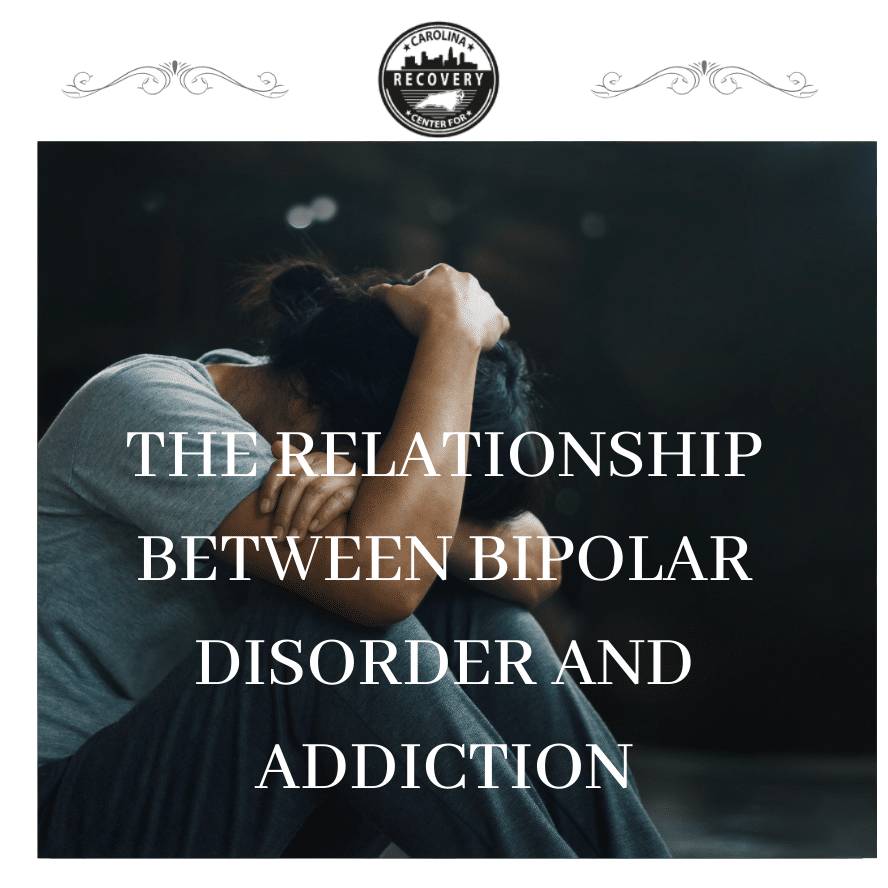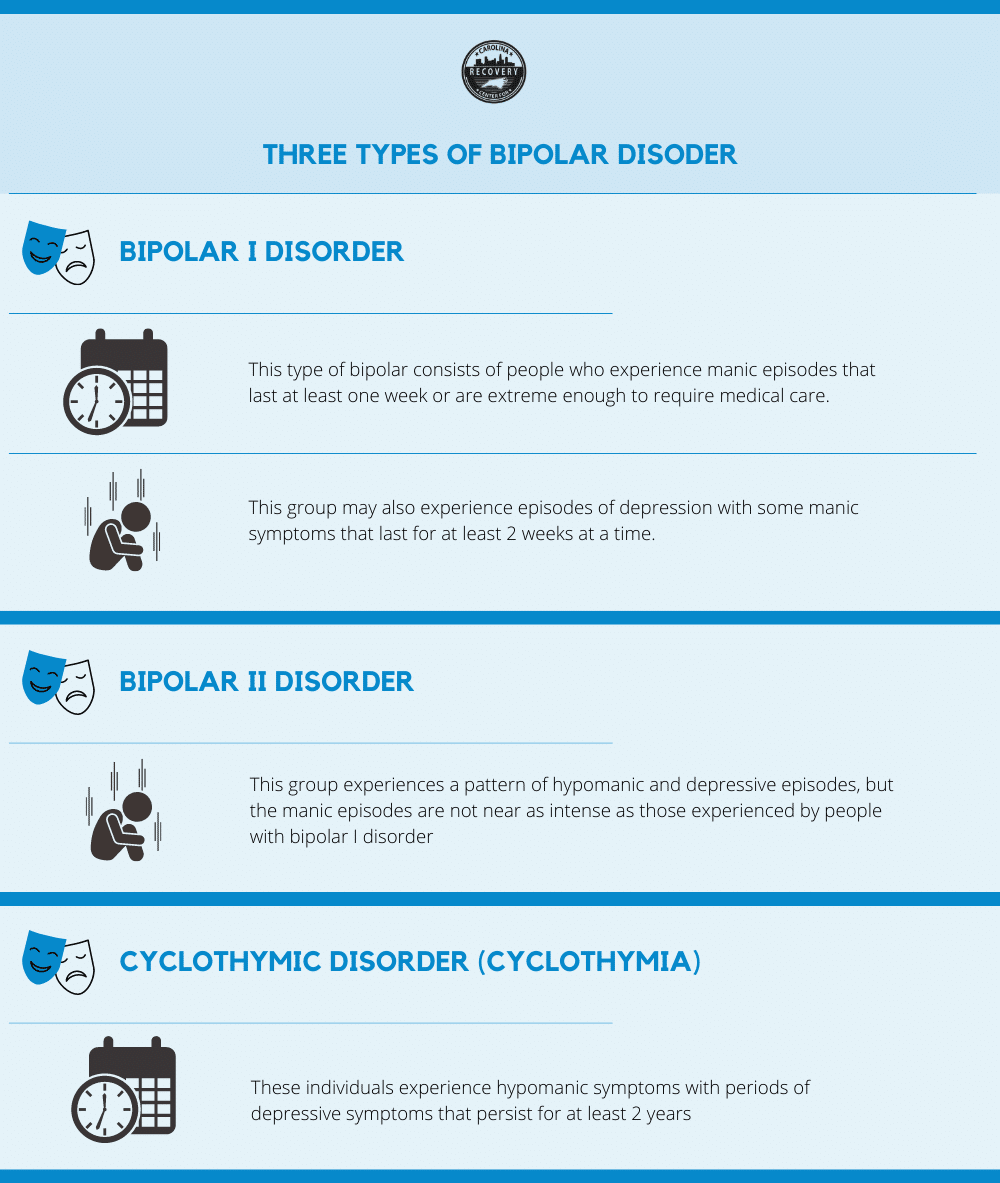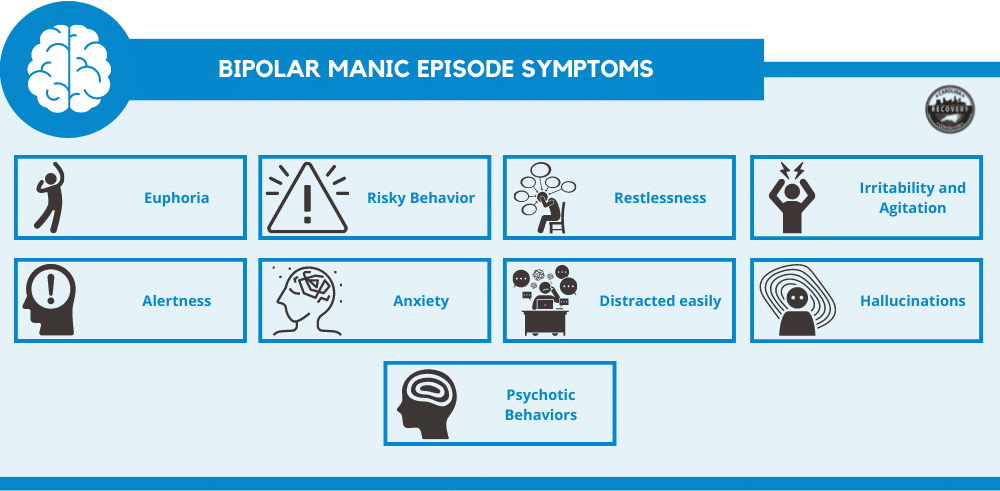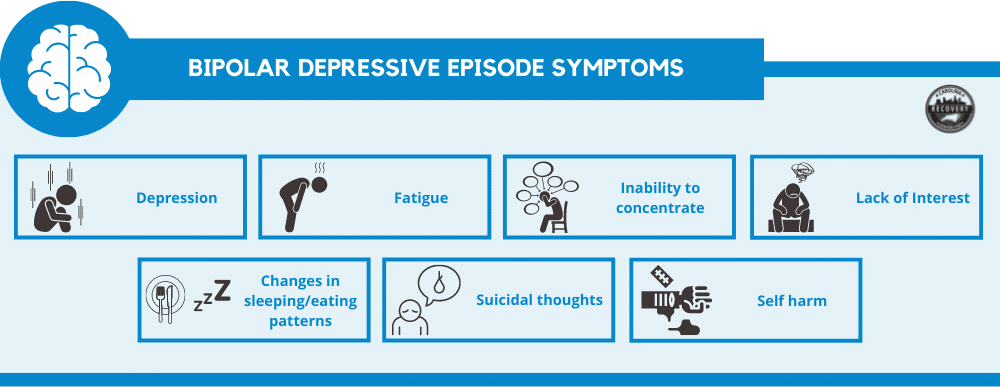The Relationship Between Bipolar Disorder and Addiction

Medically Verified: 2/1/24
Medical Reviewer
Chief Editor

All of the information on this page has been reviewed and verified by a certified addiction professional.
Like other mental health conditions, bipolar disorder and addiction often occur simultaneously. As a result, people who suffer from both disorders require specialized treatment that targets both mental health and substance abuse.
Bipolar disorder was once referred to as manic depression and is a mental health condition characterized by erratic and quick mood swings, behavior changes, and energy. Drug or alcohol addiction, on the other hand, is also a serious condition that cannot be cured. When both conditions exist together, the afflicted individual is likely to experience problems with relationships, financial instability, and other hardships, including suicide, at rates significantly higher than the general population. As a result, it’s imperative that you seek treatment if you’re suffering from addiction and mental illness, such as bipolar disorder.
Although neither conditions can be cured, both can be treated using a dual diagnosis addiction treatment approach. Dual diagnosis therapy uses behavioral techniques to treat co-occurring disorders. In addition to therapy and extensive counseling, many people who experience bipolar disorder benefit from mood-stabilizing medications.
To better understand the implications of bipolar disorder and substance abuse, let’s take a deeper look into the relationship between these two conditions.
Bipolar Disorder: Signs and Symptoms
Although bipolar disorder is characterized by sudden and intense mood swings, there are three specific types:
- Bipolar I Disorder – This type of bipolar consists of people who experience manic episodes that last at least one week or are extreme enough to require medical care. This group may also experience episodes of depression with some manic symptoms that last for at least 2 weeks at a time.
- Bipolar II Disorder – This group experiences a pattern of hypomanic and depressive episodes, but the manic episodes are not near as intense as those experienced by people with bipolar I disorder
- Cyclothymic Disorder (Cyclothymia) – These individuals experience hypomanic symptoms with periods of depressive symptoms that persist for at least 2 years
Furthermore, not everyone with bipolar disorder will fit into one of these three categories, so these symptoms are categorized as “other specified and unspecified bipolar and related disorders.”[1]
Bipolar disorder is usually diagnosed during the late adolescent or early adult years. Since this condition is characterized by mood swings, there are numerous signs and symptoms of this disorder that may change depending on which type of episode a person experiences. For example, symptoms that someone might experience during a manic episode include:
- Happy and outgoing
- Risky or impulsive behaviors
- Restlessness
- Irritability and agitation
- Alertness
- Racing thoughts and anxiety
- Distracted easily
- Hallucinations
- Psychotic behaviors
On the other hand, symptoms that occur during depressive episodes may include:
- Depression
- Fatigue
- Inability to concentrate
- Lack of interest in hobbies or activities
- Changes in eating and sleeping patterns
- Suicidal thoughts
- Inflicting self-harm
At the same time, some episodes may comprise of mixed symptoms, so people may display symptoms of manic and depressive episodes all at the same time.



The Connection Between Bipolar Disorder and Addiction
Due to the manic highs and the depressive lows, the symptoms of bipolar disorder are terribly difficult to manage. Many people desperately try multiple medications and struggle to find the one that fits best for them. Moreover, some people get tired of waiting to feel better – so they attempt to self-medicate with drugs or alcohol. However, self-medicating is never a healthy way to cope and it almost always inevitably leads to an uncontrollably painful addiction.
Furthermore, people are more impulsive during manic episodes, so some are more likely to engage in risky behaviors involving drug abuse or binge drinking. Then, when the mania wears off and the depression sets in, these individuals keep abusing substances in order to feel good again.
To better understand the comorbidity of bipolar disorder and addiction, consider the following numbers released by the National Institute on Alcohol Abuse and Alcoholism:[2]
- An estimated 46.2% of people with bipolar I disorder also have an alcohol use disorder and 60.7% have a substance use disorder
- Nearly 40.7% of people with bipolar II disorder suffer from substance use disorder and 39.2% have an alcohol use disorder
Sometimes, the bipolar disorder occurs because of a chemical imbalance or genetics. Other times, it develops as a result of trauma. Regardless, masking the underlying causes of mental illness through the use of intoxicating substances is dangerous and typically only makes these symptoms get worse. However, as soon as people stop using drugs or drinking alcohol and ask for help – they begin to heal from these co-occurring disorders.
Dual Diagnosis Treatment for Addiction and Bipolar Disorder
Treating alcoholism or drug addiction and bipolar disorder involves addressing both issues at the same time. During dual diagnosis treatment, clinicians and medical staff assist patients by providing both pharmacotherapy and behavioral therapies.[3] Typically, the treatment process begins with detox.
Medications like mood stabilizers, antipsychotics, and benzodiazepines are used during detox and the treatment process to help patients achieve mental and physical stability. After detox, you can expect to participate in the following therapies during treatment:
- Cognitive-behavioral therapy
- Individual mental health counseling
- Group therapy
- Medication-assisted treatment
- Holistic therapy
As a whole, a comprehensive dual diagnosis treatment approach helps patients identify the thoughts and feelings that lead to their manic and depressive episodes in the first place. Then, therapists help patients cultivate healthy coping skills to help them manage their symptoms without the use of drugs or alcohol.
While detox and residential addiction treatment is the right place to start, overcoming addiction and bipolar disorder is a life-long journey for many people. It typically involves intensive treatment, ongoing counseling, and aftercare support.
Although this might sound like a lot, our mental health professionals in North Carolina specialize in treating co-occurring mood disorders and substance abuse. We’ll be with you every step of the way. If you’re ready to begin your journey to sobriety and get your bipolar disorder under control, contact us today.
References:

